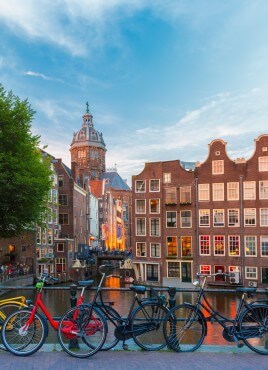Testimonio: ahí estaba MSH cuando desperté
Rachel vive en Togo y lleva con MSH desde 2002. Tras una cirugía ordinaria, entró en un coma que duró 2 meses. Su hospitalización cuesta más de 200.000 euros, pero MSH lo cubrió todo, sin que ella tuviera que hacerse cargo de nada. Gracias a la prontitud del personal y su excelente manejo de la situación, la familia de Rachel pudo ahorrarse toda la angustia propia de la situación, al igual que Rachel cuando salió del coma.
Testimonio: una segunda opinión
Petra estaba muy preocupada porque le habían prescrito una cirugía tras un accidente doméstico. Antes de decidirse, quería una segunda opinión. Gracias a su seguro médico privado, que incluía una garantía de segunda opinión médica, pudo consultar enseguida con otro doctor que le resolvió todas sus dudas. El segundo doctor le confirmó que la cirugía era necesaria y Petra acudió al hospital sintiéndose segura y reconfortada.
Testimonio: una decisión correcta
Bill y su familia residen en Brasil. Descontento con su anterior aseguradora, Bill se cambió a MSH en diciembre de 2015: "Una de las mejores decisiones que he tomado desde que estoy aquí", dice Bill, "por el nivel de servicio y por la amplitud y calidad de la red médica". La tarjeta de asegurado de Bill ya está reconocida por los mayores y mejores hospitales de São Paulo. Incluso disfruta del servicio de pago concertado en pruebas hospitalarias sencillas sin necesidad de autorización previa: "MSH te facilita la vida", dice Bill.




